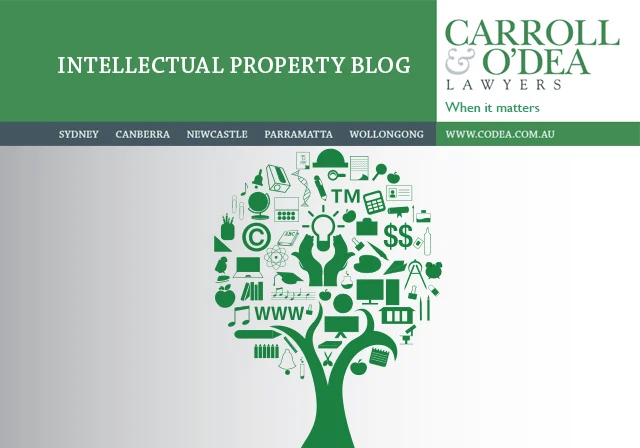
Australian Parliament passes website blocking anti-piracy laws
Published on April 6, 2015 by Patricia Monemvasitis and Kim Leontiev
Australian Parliament passes website blocking anti-piracy laws to support copyright owners
Several months since being first introduced into parliament in March this year, the Copyright Amendment (Online Infringement) Bill 2015 (“the Amendments” or “Anti Piracy Laws”) has on 22 June 2015 been passed by the Senate after being passed by the Lower House a week earlier.
The Amendments seek to introduce new measures against online piracy through the peer-to-peer file sharing networks by allowing the Federal Court of Australia to order a carriage service provider such as telecommunications companies or internet service providers (ISPs) to block access to certain websites (“online locations”) if that website is operated outside Australia and is used for or facilitates copyright infringement and has copyright infringement as its primary purpose.
It is important to note that the orders of the Federal Court will only be against carriage service providers and not the owners/operators or hosts of the websites. The orders are also limited to websites operated outside Australia. These limitations recognise the existing remedies for copyright infringement under the Copyright Act 1968 (Cth) such as damages and injunctions for infringement by communication of the work to the public or authorisation of same, which are available to copyright owners against website owners/operators or hosts of websites in Australia.
For rights holders the amendments have been heralded a watershed moment in preventative copyright protection. Up until these amendments, copyright holders seeking remedies in Australia had to (largely unsuccessfully) pursue internet service providers for secondary infringement (authorisation) or attempt to pursue the end-user pirate which prior to the recent decision in Dallas Buyers Club LLC v iiNet Limited [2015] FCA 317 has been a problem due to the unknown identities behind the IP addresses from which content was uploaded or downloaded on peer-to-peer networks.
More specifically, the new Section 115A of the Copyright Act 1968 (Cth) (to commence upon receiving Royal Assent) provides the Federal Court the power to grant an injunction requiring a carriage service provider to take reasonable steps to disable access to an online location outside Australia that infringes or facilitates an infringement of copyright and has this infringement or facilitation of infringement (whether in or outside Australia) as its primary purpose.
The carriage service provider as well as the operator of the website outside Australia must be notified of the application for injunction, unless the Court dispenses with this requirement.
The question about the primary purpose of an infringing website is likely to be contentious with “primary purpose” and “facilitation” left undefined in the Amendments. The Revised Explanatory Memorandum is not elaborate either, simply stating that the term “primary purpose” is aimed at preventive abuse of the injunction and would, on the face of it, not allow an injunction to block youtube.com or an offshore website operated by an art gallery even if it became suddenly used for copyright infringement. Presumably, this is because the primary purpose of YouTube or the art gallery website would not be use for or facilitation of copyright infringement.
Nonetheless, the question of primary purpose is likely to be an issue. Whilst in some cases of flagrant and explicit, self-proclaimed pirating websites the primary purpose may be easy to demonstrate, the primary purpose of other peer-to-peer file sharing sites may prove more ambiguous given that there could be an undetermined mix of legitimate, (i.e. copyright compliant) file sharing and at the same time some illicit sharing of copyright material.
Once the Court is satisfied that the primary purpose of the website is copyright infringement or facilitation or copyright infringement, it may then consider the following factors in determining whether or not to grant an injunction:
- the flagrancy of the infringement or facilitation of infringement
- whether the online location makes available directories, indexes or categories of the means to infringe or facilitate infringement
- whether the owner or operator of the online location demonstrates a disregard for copyright generally
- whether access to an online location has been disabled by orders from any court of another country of territory on the ground of related copyright infringement
- the proportionality of the grant of the injunction as a response
- impact on any person, or class of persons, likely to be affected by the injunction
- the public interest of disabling access to the online location
- other remedies available under the Copyright Act
- any other matter as prescribed by the Regulations or more generally.
The Court is also given power to limit the duration of, rescind or vary a granted injunction.
It will be interesting to see just how the Court will address and balance these varied considerations once the first applications for an injunction are made by copyright owners.
The Court will therefore need to grapple with the conflicting considerations of protecting the interest of copyright right owners and overreaching censorship of legitimate internet use. The limitations and listed considerations in relation to other remedies and impact on users are perhaps some manifestations of this concern.
The primary aim of the Amendments however is to allow copyright owners a preventative remedy by making it possible to identify and apply for an injunction to block the sources or online infrastructure from where end-user pirates obtain and disseminate the copyright-protected materials.
It is yet to be seen how effective as a preventative measure these Amendments will prove and already the government has scheduled for a review of the legislation in 18 months time.
It will be an interesting 18 months indeed as we await the first applications and the judicial treatment of these controversial Amendments.
